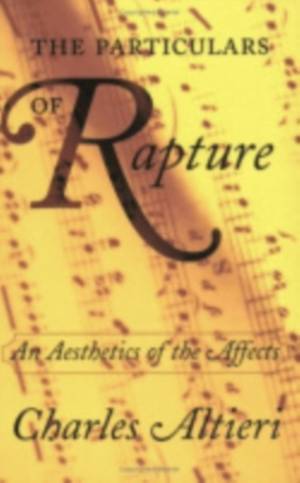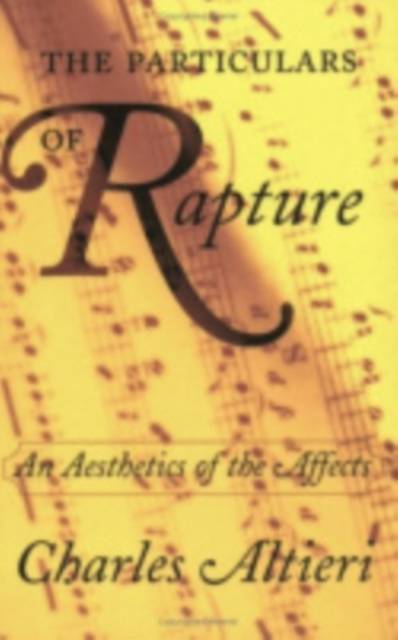
- Afhalen na 1 uur in een winkel met voorraad
- In januari gratis thuislevering in België
- Ruim aanbod met 7 miljoen producten
- Afhalen na 1 uur in een winkel met voorraad
- In januari gratis thuislevering in België
- Ruim aanbod met 7 miljoen producten
Omschrijving
This brilliant, penetrating, and ambitious book by a well-known literary theorist studies the complex relationship between the emotions on the one side and literary works and paintings on the other. A central aim of Charles Altieri's is to rescue our understanding of the affects from philosophical theories that subordinate them to cognitive control and ethical judgment.
Altieri concentrates on two fundamental aspects of aesthetic experience: the first describes how representative texts and paintings compose intricate affective states; the second engages how we might generalize from the values involved in the affects made articulate by works of art. He addresses a range of affective states, distinguishing carefully among sensations, feelings, moods, emotions, and passions. He shows how art solicits, organizes, and reflects upon affective energies and how many of the qualities of the affects developed within artworks simply disappear when observers are content with adjectival labels such as "sad," "angry," or "happy."
The Particulars of Rapture proposes treating affects in adverbial rather than in adjectival terms, emphasizing the way in which text and paintings shape distinct affective states. Such an emphasis places the manner in which artwork acts upon the emotions central to the quality of the resulting affect. And that emphasis in turn enables Altieri to show how a more general expressivist model for establishing and assessing values can compete with perspectives based on rationality.
Specificaties
Betrokkenen
- Auteur(s):
- Uitgeverij:
Inhoud
- Aantal bladzijden:
- 320
- Taal:
- Engels
Eigenschappen
- Productcode (EAN):
- 9780801488436
- Verschijningsdatum:
- 8/12/2003
- Uitvoering:
- Paperback
- Formaat:
- Trade paperback (VS)
- Afmetingen:
- 158 mm x 234 mm
- Gewicht:
- 467 g

Alleen bij Standaard Boekhandel
Beoordelingen
We publiceren alleen reviews die voldoen aan de voorwaarden voor reviews. Bekijk onze voorwaarden voor reviews.









